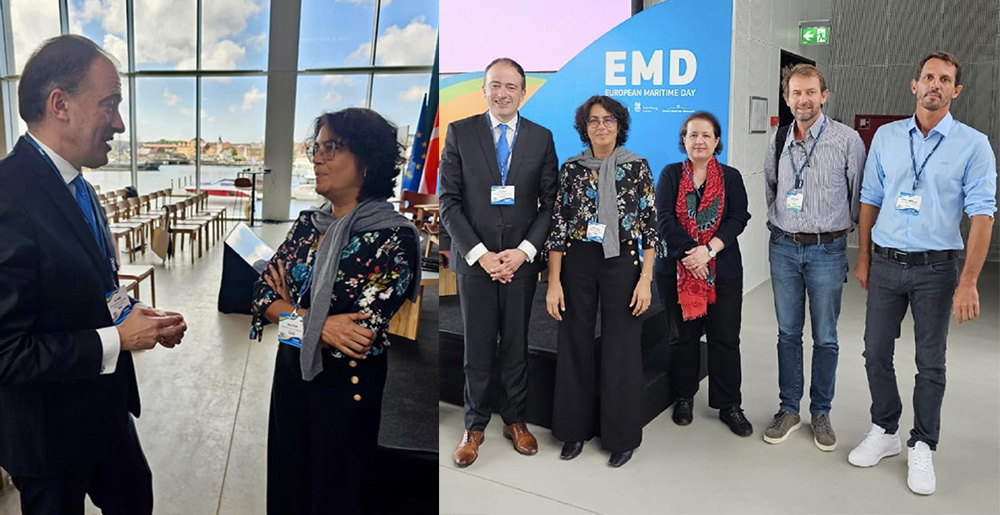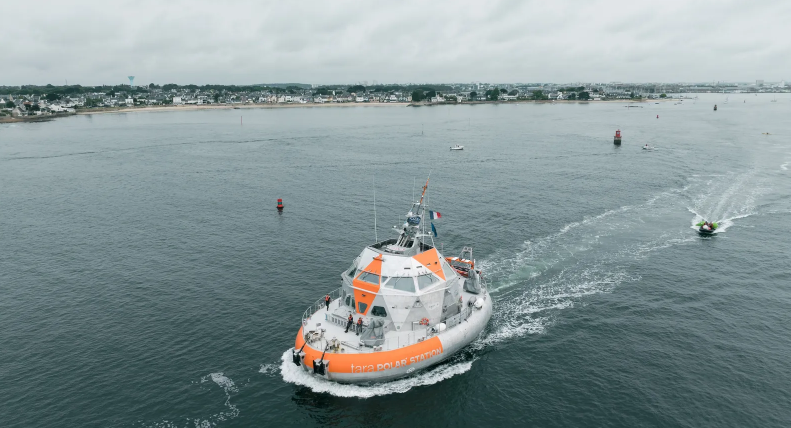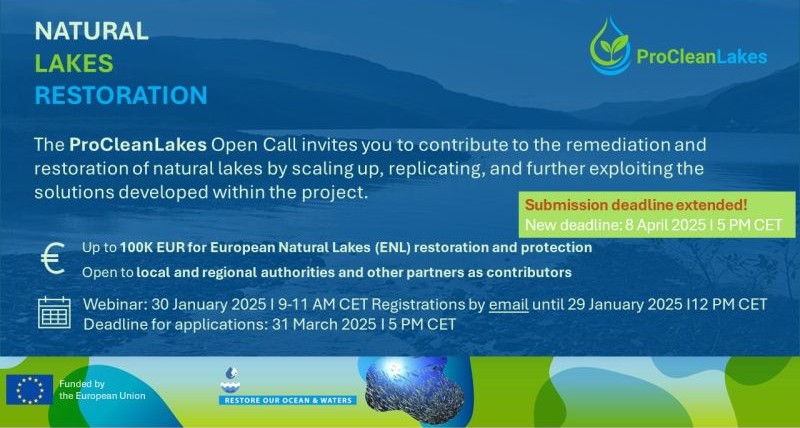On the occasion of the 2024 edition of the European Maritime Days on May 30 and 31 in Svendborg, Denmark, a delegation from Reunion led by Maya Cesari, regional advisor responsible for innovation and the blue economy and president of the Blue Institute, participated in this event aimed at promoting international cooperation to promote and protect marine environments.
Co-organized by the European Commission, the municipality of Svendborg and the Danish maritime authorities at the headquarters of SIMAC (Svendborg International Maritime Academy) which is the largest maritime education establishment in the country, the European Maritime Days is the event major annual event during which the European maritime community comes together to discuss the challenges and opportunities linked to the seas and oceans.
Bringing together more than 1,000 participants from European coastal communities, the debates generally focused on developments in European maritime policy and cooperation between the different maritime basins.
The Reunion delegation, also composed of Erwann Lagabrielle, teacher-researcher in geography at the University of Reunion and Jean Turquet, representative of the technical center for research and development of aquatic environments (CITEB), in this context, presented the he importance of the sustainable blue economy of Reunion, a region far from the European continent, but very open to the Indian Ocean. Indeed, traditional maritime activities such as fishing and transport, or new ones such as biotechnologies or renewable energies, constitute a lever for the development of the island, the creation of value, training and employment.
Investing in innovation and skills, giving visibility to different stakeholders, developing collaborations and facilitating investments represent the key challenges for the future. Reunion, under the leadership of the Region, is committed to this approach through its involvement in several European projects such as “Blue Green Governance” (maritime governance) and “Remora” (increasing research and innovation capacities). in the outermost regions).
During her speech to Eric Banel, Director General of Maritime Affairs, Fisheries and Aquaculture and representative of the State Secretariat for the Sea, Maya Cesari wished to recall and deplore the absence of the Meeting of Strategies European maritime basins.
However, the Indian Ocean represents several major strategic issues (defense, fishing, etc.) for the European Union, whose influence and commitment are significant in the area. France and Europe have every advantage in developing, with the Réunion Region and local stakeholders, a coherent and intelligent maritime strategy with governance combining knowledge, partnership and citizen participation. The translation of this strategy into geographical space takes the form of a maritime spatial plan. Identifying the different uses of the sea, collecting oceanographic data, mapping activities and ecosystems, organizing stakeholder consultation, exploring scenarios are all necessary steps for the development of this planning.
The Region has the ambition to make Reunion Island, strong in its history and its values, a player in its maritime future. Currently presiding over the Conference of Presidents of the Outermost Regions of the European Union, the President of the Réunion Regional Council, Huguette Bello, is pleading for a tailor-made approach to integrated maritime policy and for greater coherence of European measures, which for this purpose need to be carried out at the territorial level of the different ORs.




